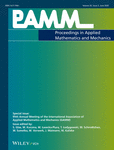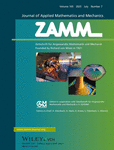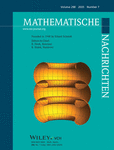About this Journal
Aims and scope
The main objective of Discrete Dynamics in Nature and Society (DDNS) is to foster links between basic and applied research relating to discrete dynamics of complex systems encountered in the natural and social sciences.
Discrete dynamics reflects a new emerging tendency towards utilization of iterative mathematical models—systems of difference equations—to describe the behavior of complex systems. It has became clear from the latest development in discrete modeling that such models have a simpler structure and provide many more possibilities for generating and describing complex non-linear phenomena, including chaotic regimes and fractals.
However, further developments in such a discrete mathematical approach are restricted by the absence of general principles that could play the same role as the variational principles in physics. Discrete Dynamics in Nature and Society aims to elaborate such principles, which are expected to lead to a better understanding of the exact meaning of “discrete” time and space, and, to the creation of a new “calculus” for discrete complex dynamics. These general principles should provide direct construction of difference equations for their further use in mathematical modeling of complex, living and thinking systems as it was happened in classical mechanics for the inert matter.
The journal intends to stimulate publications directed to the analyses of computer generated solutions and chaotic in particular, correctness of numerical procedures, chaos synchronization and control, discrete optimization methods among other related topics.
The journal will provide a channel of communication between scientists and practitioners working in the field of complex systems analysis and will stimulate the development and use of discrete dynamical approach.
Discrete Dynamics in Nature and Society will publish original, high-quality, research papers. In addition there will be regular editorials, invited reviews, a letters section and a news section containing information on future events, and book reviews.
Bibliographic information
ISSN: 1026-0226 (Print)
ISSN: 1607-887X (Online)
DOI: 10.1155/3059
Acknowledgements
Discrete Dynamics in Nature and Society was founded in 1997 by Professor Vladimir Gontar who served as an Editor-in-Chief of the journal between 1997 and 2011 and Professor Michael Sonis who served as an Editor-in-Chief of the journal between 1997 and 2002.
Abstracting and Indexing
Discoverability
The journal's articles appear in a wide range of abstracting and indexing databases, and are covered by numerous other services, as given in the full list below. The following link provides more information about Wiley's approach to making articles more discoverable.
Indexing Information
- Academic OneFile (GALE Cengage)
- Academic Search Alumni Edition (EBSCO Publishing)
- Academic Search Complete (EBSCO Publishing)
- Academic Search Research & Development (EBSCO Publishing)
- Advanced Technologies & Aerospace Database (ProQuest)
- Aerospace Database
- Applied Science & Technology Source (EBSCO Publishing)
- CAS: Chemical Abstracts Service (ACS)
- Civil Engineering Abstracts
- CNKI Scholar
- Computer and Information Systems Abstracts (ProQuest)
- Computers & Applied Sciences Complete (EBSCO Publishing)
- Current Contents: Physical, Chemical & Earth Sciences (Clarivate Analytics)
- Current Index to Statistics (ASA/IMS)
- Directory of Open Access Journals (DOAJ)
- Electronics and Communications Abstracts
- Engineering Research Database
- Environmental Studies and Policy Collection
- Google Scholar
- InfoTrac (GALE Cengage)
- INSPEC (IET)
- J-Gate Portal
- Journal Citation Reports/Science Edition (Clarivate Analytics)
- Mathematical Reviews/MathSciNet/Current Mathematical Publications (AMS)
- OmniFile Full Text Mega Edition (HW Wilson)
- ProQuest Computer Science Journals
- RePEc: Research Papers in Economics
- Science Citation Index Expanded (Clarivate Analytics)
- SciTech Premium Collection (ProQuest)
- SCOPUS (Elsevier)
- Statistical Theory & Method Abstracts (Zentralblatt MATH)
- Technology Collection (ProQuest)
- Technology Research Database
- Web of Science (Clarivate Analytics)
- zbMATH (Zentralblatt MATH)








